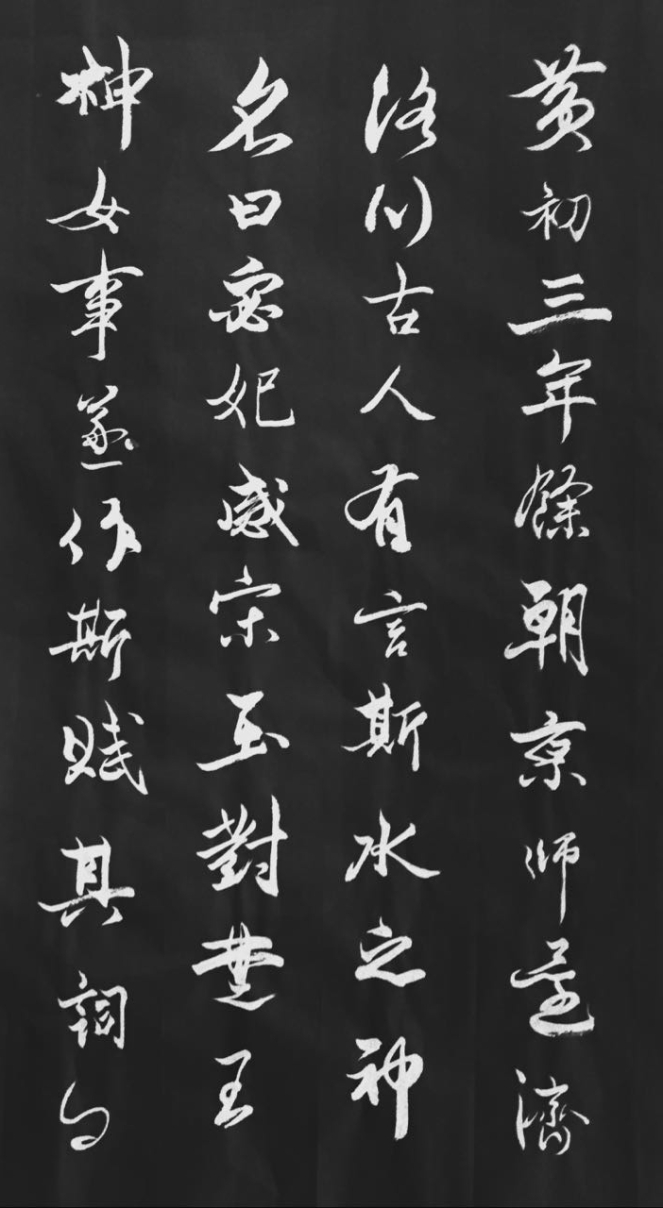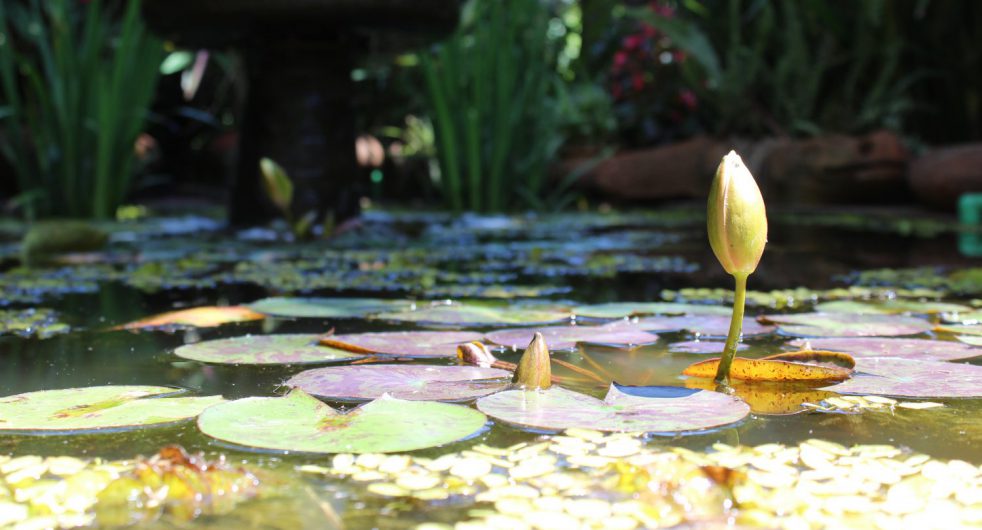
I once dreamed Li Shangyin[1] was banished from court for speaking his mind. He fell into a deep depression. On a dark day, he went to an oracle and asked the soothsayer to examine the turtle bones and divine his future path.
The oracle looked at Shangyin and said: “My son, what is it you want from me?”
Shangyin replied as follows.
“Should I be honest and truthful and say what is in my heart, or should I conform and be good at wiggling out of predicaments? Should I reclaim what was barren land and work to make it fertile, or bend to tradition and seek wealth and be resigned to drag out an ignoble existence? Should I stand head and shoulders above the crowd and follow my heart, or fawn and toady to others, smile prettily and become the king’s favorite? Should I be honest and protect my integrity, or conform to the normal state of things, and be as greasy as a concubine’s makeup, or be a soft animal’s pelt that curries favor with the rich and powerful? Should I ride like a great stallion straight and true for a thousand Li, or be like a broken horse that follows worn out paths? Should I fly wing to wing with the swan, or fight with chickens and ducks for food?
“What augurs good or bad for me? What should I renounce and what should I embrace? Recently, in the confusion of my world, the cicada seems heavy, and death seems light. Precious things are abandoned, earthen crocks rattle with the sound of thunder. Small men strut about and give themselves airs, wise men are ignored. Who can understand why I must be truthful and incorruptible?”
The oracle put down the turtle shell and bamboo strips, and said to Shangyin:
“A foot is longer than an inch, and perhaps it is not long enough; an inch is shorter than a foot, and perhaps that is good. There is so much in the world that is imperfect, and at times a man’s wisdom is not understood. There are things which even the oracle bones have difficulty understanding.
“I say to you, of the passion that drives one’s path to wisdom, or what actions a person should take… for these things, turtle shells are useless.”
隋舰临淮甸, suí jiàn lín huái diàn,
唐旗出井陉。 táng qí chū jǐng xíng。
断鳌支四柱, duàn áo zhī sì zhù,
卓马济三灵。 zhuō mǎ jǐ;jì sān líng。
祖业隆盘古, zǔ yè lóng;lōng pán gǔ,
孙谋复大庭。 sūn móu fù dà tíng。
从来师俊杰, cóng lái shī jùn jié,
可以焕丹青。 kě yǐ huàn dān qīng。
旧族开东岳, jiù zú kāi dōng yuè,
雄图奋北溟。 xióng tú fèn běi míng。
邪同獬廌触, xié tóng;tòng xiè zhì chù,
乐伴凤凰听。 lè;yuè bàn fèng huáng tīng。
酣战仍挥日, hān zhàn réng huī rì,
降妖亦斗霆。 jiàng yāo yì dòu;dǒu tíng。
将军功不伐, jiāng jūn gōng bù fá,
叔舅德惟馨。 shū jiù dé wéi xīn。
鸡塞谁生事, jī sè;sài;sāi shuí shēng shì,
狼烟不暂停。 láng yān bù zàn tíng。
拟填沧海鸟, nǐ tián cāng hǎi niǎo,
敢竞太阳萤。 gǎn jìng tài yáng yíng。
内草才传诏, nèi cǎo cái zhuàn;chuán zhào,
前茅已勒铭。 qián máo yǐ lè míng。
那劳出师表, nà;nèi láo chū shī biǎo,
尽入大荒经。 jìn;jǐn rù dà huāng jīng。
德水萦长带, dé shuǐ yíng cháng dài,
阴山绕画屏。 yīn shān rào huà píng;bǐng。
只忧非綮肯, zhī;zhǐ yōu;yǒu fēi qǐ kěn,
未觉有膻腥。 wèi jué;jiào yǒu shān xīng。
保佐资冲漠, bǎo zuǒ zī chōng mò,
扶持在杳冥。 fú chí zài yǎo míng。
乃心防暗室, nǎi xīn fáng àn shì,
华发称明廷。 huá fà chèn míng tíng。
按甲神初静, àn jiǎ shén chū jìng,
挥戈思欲醒。 huī gē sī yù xǐng。
羲之当妙选, xī zhī dāng;dàng miào xuǎn,
孝若近归宁。 xiào ruò jìn guī níng。
月色来侵幌, yuè sè lái qīn huǎng,
诗成有转櫺。 shī chéng yǒu zhuǎi líng。
罗含黄菊宅, luó;luō hán huáng jú zhái,
柳恽白蘋汀。 liǔ yùn bái pín tīng。
神物龟酬孔, shén wù guī chóu kǒng,
仙才鹤姓丁。 xiān cái hè xìng dīng。
西山童子药, xī shān tóng zǐ yào,
南极老人星。 nán jí lǎo rén xīng。
自顷徒窥管, zì qǐng tú kuī guǎn,
于今愧挈瓶。 yú jīn kuì qiè píng。
何由叨末席, hé yóu dāo mò xí,
还得叩玄扃。 hái;huán dé;děi;de kòu xuán jiōng。
庄叟虚悲雁, zhuāng sǒu xū bēi yàn,
终童漫识鼮。 zhōng tóng màn shí tíng。
幕中虽策画, mù zhōng suī cè huà,
剑外且伶俜。 jiàn wài qiě líng pīng。
俣俣行忘止, yǔ yǔ xíng;háng;xìng wàng zhǐ,
鳏鳏卧不瞑。 guān guān wò bù míng。
身应瘠于鲁, shēn yīng;yìng jí yú lǔ,
泪欲溢为荥。 lèi yù yì wèi;wéi xíng。
禹贡思金鼎, yǔ gàng;gòng sī jīn dǐng,
尧图忆土铏。 yáo tú yì tǔ xíng。
公乎来入相, gōng hū lái rù xiàng;xiāng,
王欲驾云亭。 wáng yù jià yún tíng。
From Emperor Sui’s armada on the banks of the Huai river
The Tang banners entered Jingxing
Ao the great sea turtle carried the sky’s 4 pillars[2]
Horses galloped into the three lands[3]
At Pangu, the centre of heaven and earth, great events began[4]
The rise of the Farmer God was uninterrupted
From a line of martial heroes
Their immortal exploits inscribed in cinnabar red
Lu Shi began his work in the eastern mountains[5]
And made great cause in the northern seas
Like the fabulous Oracle bird that knew good from evil
The East heard the sound of the phoenix
After hard won battles, you led the sun
Evil was surrounded by lightning bolts
No one dared to disturb the roosters
Even the lurking wolf couldn’t briefly remain
You were like the bird who tried to fill the sea with pebbles
As brave as the firefly that challenged the sun!
Before the inner sanctum issued your summons
The soldiers would have your name chiseled in stone
You prepared long and hard with wisdom and teachings
The land was filled with peace
‘Good water’ was depicted on your long sash
Ying Mountain was painted on the screen
You worried that there would be no unifying muscle,
Just the odor of meat and fish
Always living modestly,
Continuing to think deeply
Your heart was guarded against being in a closed place
Gray hair was respected at the court
In the beginning the God Meijia sought calm
The military reveille wakened our thoughts
Through Shao Ting you were related to Wang Zhi[6]
A devoted son like Gui Ning
Moonlight passes through the curtains
Poems are revealed in the lattice work
Official Luo Han’s villa of yellow peonies
Mister Liu Yun’s white ferns on the riverbank
Like Gui Choukong a prodigy
Like He Xingding, a magical talent
Sustained as if with the celestial’s magic pills of Si Mountain[7]
Or the Old Man’s star over the North Pole
At one time, you saw only one spot on the leopard
These days you are careful about measuring one’s flesh
Although unworthy of the lowest servant
You are humble enough to turn the doorknob
As wise as Master Zhuang’s Old Man whose duck wouldn’t chatter
Or Zhongtong, who knew much of the court
Although the imperial slats lay in the middle of your tent
How lonely you were in Jianwai
Stalwart and erect, you do not forget to keep walking
Although lonely, even sleeping you are awake
The body should be hungry and lean
As your tears long wash over Xing
Of Yu’s tribute, consider the golden ding
King Rao’s portrait recalls the 6 soup cauldrons
All urge you to enter with those such as you
And by the Emperor, ride above the clouds!
Thoughts of Liszt: composed and played by Mark Obama Ndesandjo
As I studied the works of Franz Liszt last month, I composed this piece as an homage to the great pianist and composer.
Calligraphy: The ‘Prologue to the Fu on the Goddess of the River Luo’ by Mark Obama Ndesandjo.
This classic poem dates back to the Warring States Period and the great statesman Chu Yuan (340-278BC). The calligraphy is in the xing (flowing) script, and the original was prepared freehand on white xuan paper with the traditional black ink hairbrush. The characters are translated as follows, from right to left, top to bottom:
In the 3rd year of Huang Chu, I crossed the waters to Luo Chuan from the Imperial Capital. The Ancients said there is a demon spirit called Mi Fei within these waters. Her passionate story roiled Song Yu and the King of Chu. She is the subject of the following Fu.
Notes:
[1] Adapted from The Songs of the South by Chu Yuan. I use Shangyin here, as I do in many other parts of this blog, as an alter ego. The real Li Shangyin never got close to the Emperor, and served throughout his life as a low-ranking official in various provinces of the Tang empire.
[2] A mythical creature that supported the earth, rather like Atlas in Greek mythology.
[3] Sky, earth and people (literally, everything)
[4] Pangu was the earth’s primeval stage
[5] Lu Shi was an official that LSY sought for a job recommendation. The poem is an encomium to a government official.
[6] Wang Xizhi, the great calligrapher of the Jin dynasty (around 350AD)
[7] Immortality pills of Tao (Dao) mythology
